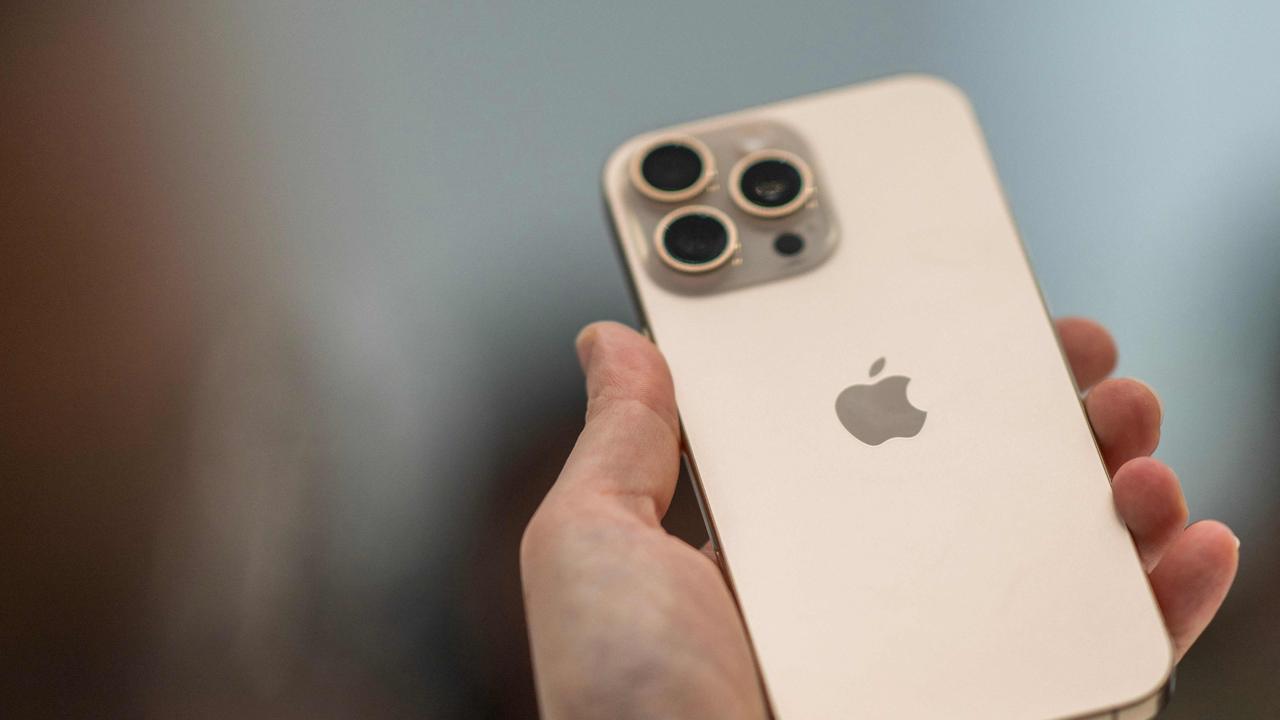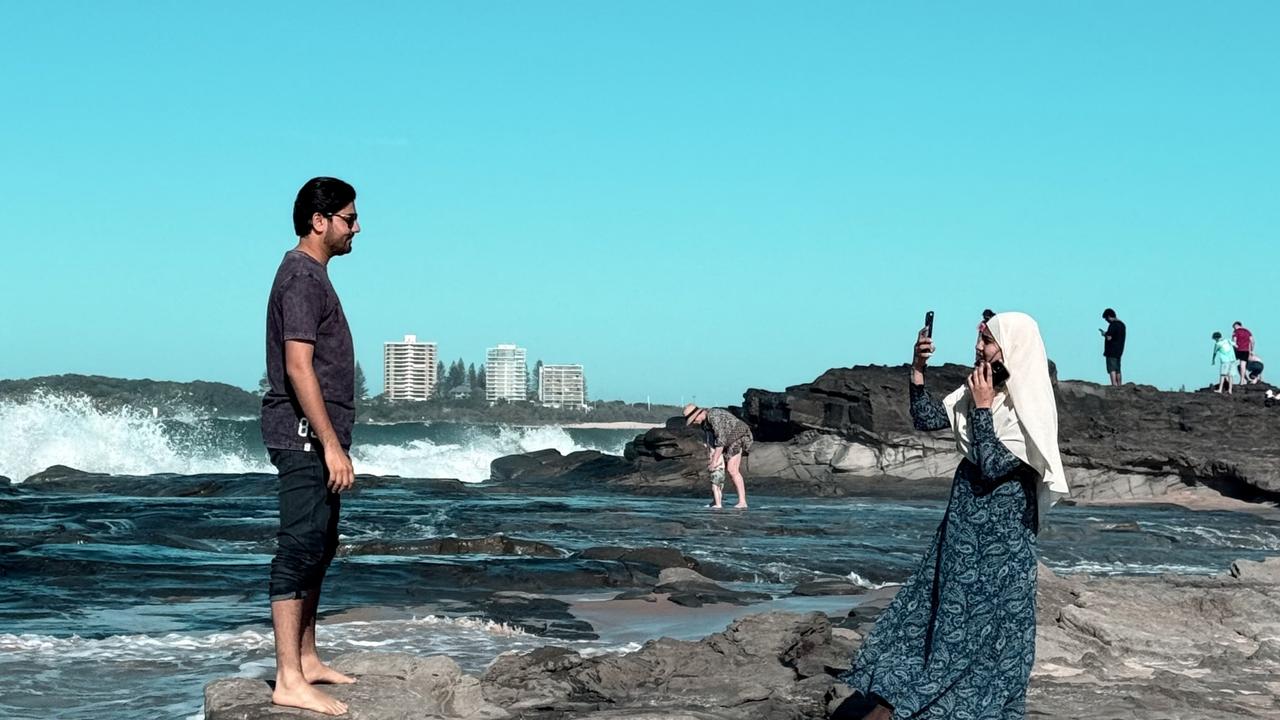Apple iPhone 16 Pro and Pro Max Australian review: How good are the cameras?
For photographers, Apple’s flagship phones really take capturing and editing photos to a whole new level. But the verdict is still out on the new camera control.
If there’s two words that really sum up the appeal of the new iPhone 16 Pro and Pro Max, it’s creativity and customisation.
For photographers, Apple’s flagship phones really take capturing and editing photos to a whole new level.
And even if you just love taking photos on your phone, you’ll be surprised with not only what you can do in the photo department but also in video and sound editing.
Let’s start with photos.
As well as new cameras, and a new camera control, photographic Styles offer a creative opportunity to produce images that are more moody, bright, stark, or just out there.
Options like Rose Gold, Amber, Luminous, Dramatic, Quiet, Cosy, Ethereal, and Stark B & W really bring a new look to your photos whether it be photos of your kids, your pooch or beach scenes.
And you not only have the options of using those in their current form but you can also make changes, upping or decreasing the tone or saturation using a new control pad, to create your own preferred settings which can be become your defaults.
We reckon this will be popular with not only creatives but those who want their own style when it comes to skin tones on selfies.

Apple says unlike filters, which often use a one-size-fits-all approach by adding a colour to an entire scene, adjustments are applied to specific colours of a selected style.
Adjustments can be rendered during live preview, applied after a photo is taken, and of course reversed later.

Of course one of the biggest changes in the line-up is the way you might actually snap your photo.
NEW CAMERA CONTROL
To be honest, I’m still getting used to the new camera control button though I’ve found it particularly useful for opening the camera app quickly, especially while I’m trying to snap a photo on the beach with the pooch on the lead in my other hand.

Later this year, when Apple Intelligence comes to iPhone, it will also give you quick access to visual intelligence features on the iPhone 16 Pro such as looking up things around you.

After clicking the Camera Control button to launch your camera app, if you do a light double click you can then bring up a range of options, including tone, style, cameras (0.5, 1, 2x and 5x), zoom (up to 15 times digital), focus (depth of field) and exposure.
Once you’ve nailed the art of the light double tap to engage the Taptic Engine, it’s easy enough to switch between the different modes.

Making adjustments to zoom and exposure can be a little slow and hit and miss, particularly if you are shooting in vertical mode. The Camera Control is really best placed for someone taking a horizontal photo, like you would with a normal camera.

THE NEW CAMERAS
The cameras on iPhone 16 Pro and 16 Pro Max are not only improved, but are decidedly quicker to snap off images along with 4K120 fps video in Dolby Vision.
The system uses a more efficient quad-pixel sensor which can read data 2x faster which delivers zero shutter lag even for 48MP ProRAW OR HEIF PHOTOS.

The new 48MP Ultra Wide camera also features a quad-pixel sensor with autofocus and it great for macro photography where you can take a look inside the beauty of the flowers in your garden for example.

The 5 x telephoto camera now comes on both iPhone Pro and iProne 16 Pro Max, so you just have to decide whether you want the larger screen and better battery life of the Max, which I still prefer.

In the video department, you can capture 4K120 fps in Slow-mo or video mode and adjust right down to a quarter speed playback, a new half-speed option for a more dreamy effect, and a fifth-speed option that corresponds to 24 fps.

AUDIO MIXING
One of the biggest improvements comes in the sound department.
Both Pro models have four studio-quality microphones that allow you to edit sound using Audio Mix.

You can adjust the sound after capture to focus on the voice of the person on camera, make it sound like the video was recorded inside a professional studio, or position vocal tracks in the front and environmental noises in surround sound.
We tested this out shooting in a neighbourhood park. I had people talking behind me which I could easily block out just having the sound from the focus of the camera area.

With wind noise reduction, algorithms also reduce unwanted noise for better audio quality.
When it comes to display, the iPhone 16 Pro grows from 6.1 inches to 6.3 inches, while the 16 Pro Max swells from 6.7 inches to 6.9 inches.
The 16 Pro display has a resolution of 2,622 by 1,206 pixels with a pixel density of 460 pixels per inch (ppi), while the Pro Max has a resolution of 2,868 by 1,320 pixels, also with a density of 460ppi.
WHAT DOES IT COST?
iPhone 16 Pro and iPhone 16 Pro Max are available in black titanium, natural titanium, white titanium, and desert titanium, in 128GB, 256GB, 512GB, and 1TB storage capacities.
More Coverage
iPhone 16 Pro starts at RRP A$1,799 and iPhone 16 Pro Max starts at $2,149.
Apple customers can get A$255 to A$1,125 in credit when they trade in iPhone 11 or higher, to put toward an iPhone 16 Pro.
If you haven’t upgraded your phone in a few years, the iPhones are certainly worth checking out. You might be surprised about how good they are and with Apple Intelligence coming in December, they will be even better.
Originally published as Apple iPhone 16 Pro and Pro Max Australian review: How good are the cameras?






